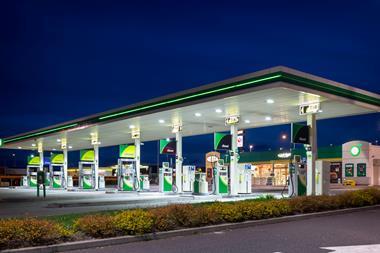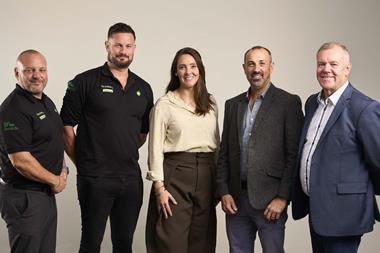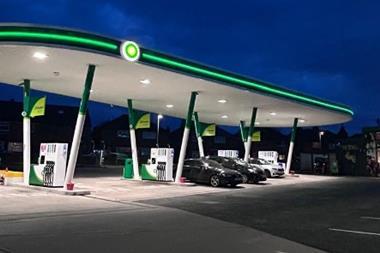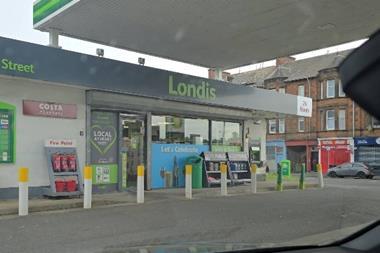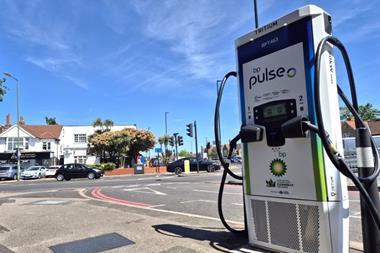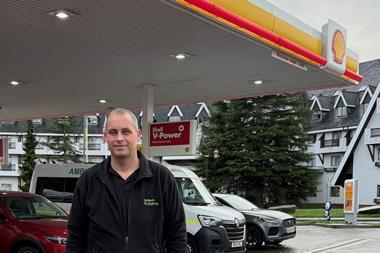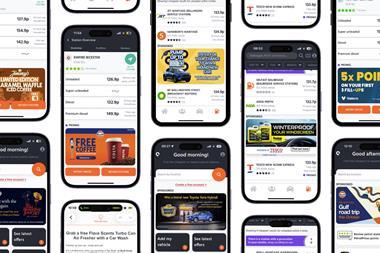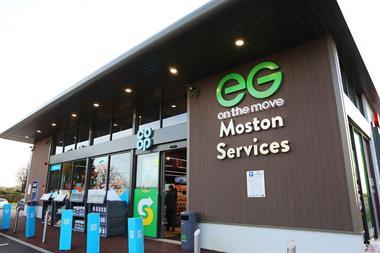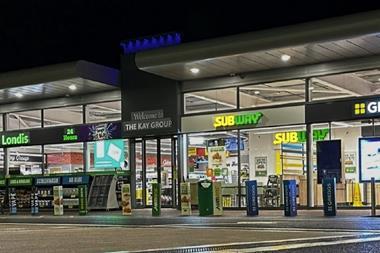
An EV-only site, hydrotreated vegetable oil (HVO) on pump, and self-scanning tills are among concepts BP is trialling for its network, UK retail operations director Joanne Hall revealed at the Forecourt Show this week.
During an on-stage interview with Forecourt Trader, Hall said the sector is “going through a huge energy transition”, with more than one million electric vehicles on Britain’s roads, and that the energy giant is working on de-carbonising, with its BP Pulse chargers now in around half its 300-plus company-owned sites and 36 of its 850 dealer forecourts.
The business is running a trial on premium HVO fuel at four UK pilot sites. She said the business is learning from the alternative fuel trial – taking place at services at Stafford on the M6, Reading West on the M4, Michaelwood North on the M5, and Brampton Hut on the A1 – in terms of how to communicate the benefits of HVO to customers.
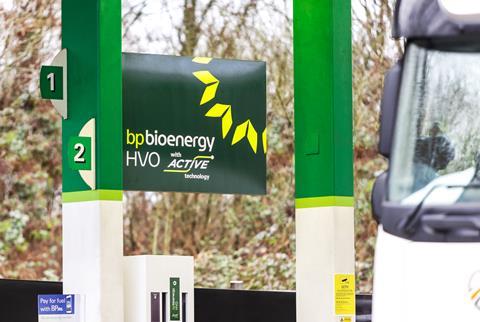
At the same time, BP has started construction of its EV charging with shop project at BP’s Cromwell Road site in London, where it will replace all the fuel pumps with EV chargers. This project will also represent a testbed for the business, giving valuable insights into what EV customers want.
Hall described the EV only trial at the Hammersmith site as “quite bold”. The refurbished outlet will open later in the year, with the convenience store including Wild Bean food to go, M&S range and branded groceries.
She said maintaining a consistent retail operation is vital as EV customers seek the same convenience offer as drivers of petrol and diesel cars. “Our EV drivers are not aliens, they are just driving a different vehicle,” she said.
“Transient and urban sites’ demands from customers will be different,” said Hall. “For transient, on the move, customers will pop in and get something quick and continue moving. And others are more destination, more food for later, and using the shop more as a convenience store,” she said.
However, increased dwell time from three to five minutes typically for drivers of conventionally-fuelled vehicles, to 20 minutes for charging, will open up opportunities for forecourt operators to offer picnic areas and add-on services such as parcel lockers, the National Lottery, and cash machines. The challenge is to prioritise what will be most important at sites constrained by space, she said.
With foodservice enjoying 5% growth, compared with 4% for convenience, BP continues to invest in its Wild Bean offer. Following the two concept sites, it has introduced its made to order breakfasts and lunches at another eight of 10 locations, which it plans to roll out in the next couple of months. Breakfast baps, crispy herby chicken burgers and fish finger sandwiches are among favourites, said Hall.
“You can choose how you have your eggs and what bread it comes on,” she said. “It has been very well received and is acting as a destination driver.”
For its dealers it is pushing its Wild Bean modular vending concept, which includes pastries and hot food snacks freshly prepared instore daily, coffee and iced blended drinks. Some 10 sites currently take the full offer and 28 more have the coffee module. BP plans to have 100 more on board by the end of the year. Customers can pay at the machines, and operators can move the modules around, and add sections.
BP is also looking at how it can make its operations more efficient in other ways, said Hall, and is trialling self-scanning at four of its stores with a view to adapting the technology more widely. She said the benefit is that it will give staff more time with customers, and that customers have become accustomed to using self-scanning to purchase fuel, food to go and groceries.
Also as part of an update to its till systems over the next couple of years, it is investing in the Relex supply chain tech to support its forecasting and ordering systems.
Asked about how forecourts would look in the future, she said: “We know consumers are moving into EVs and hybrid vehicles, and in fuel from diesel to undleaded, and also that they want alternative fuels. We will continue to evolve and adapt and go at the right pace for our customers.
“Customers will always need our food for now and for later, and hot and cold drinks. We will want to see more product development, and the next 10 years will be shaped by that. Our business will be shaped by what customers tell us.”





















